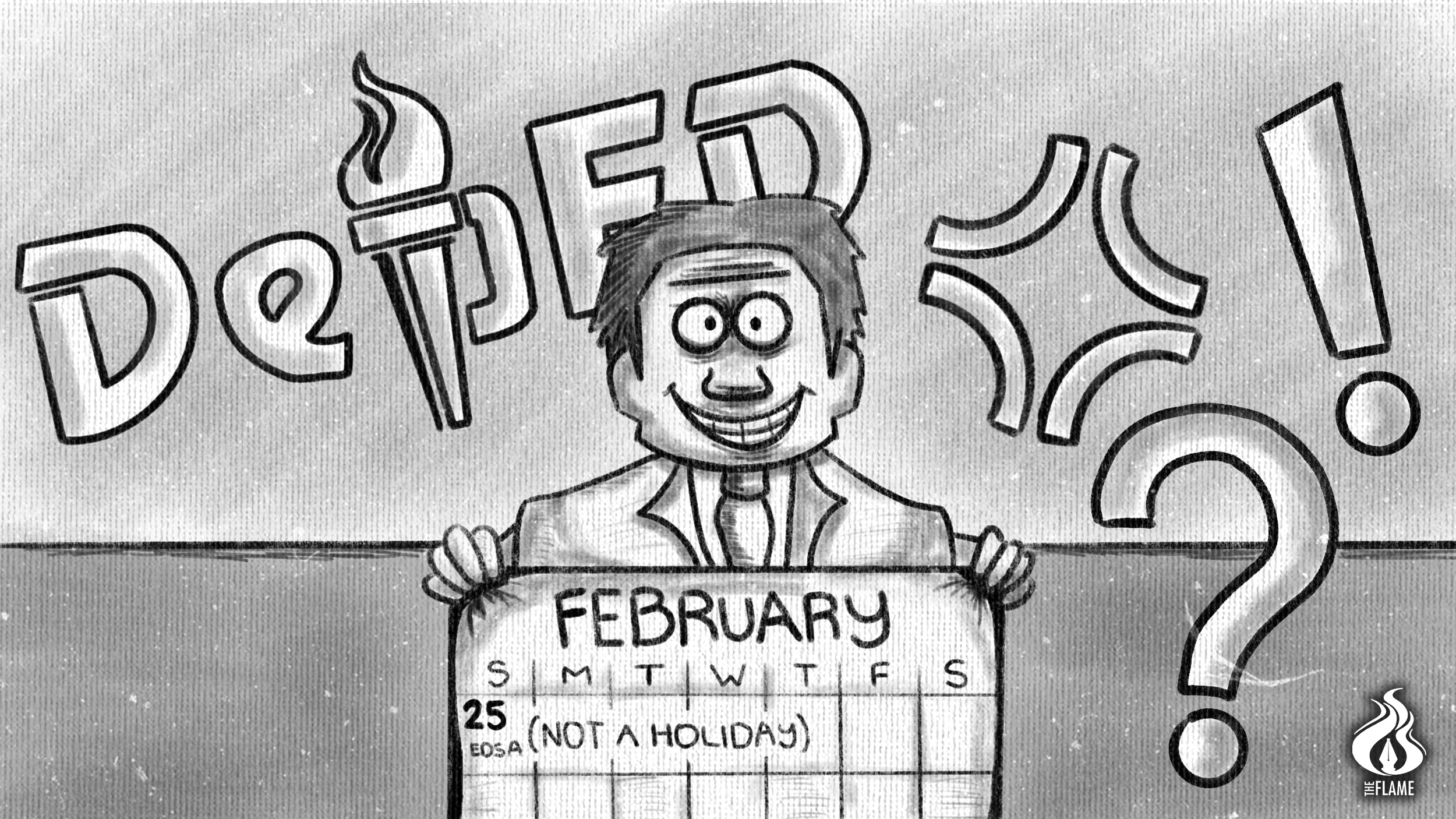
DESPITE MALACAÑANG’S decision to exclude the anniversary of the 1986 EDSA People Power Revolution from the list of holidays this year, the Department of Education (DepEd) issued a memorandum on Feb. 21, encouraging public elementary and high schools nationwide to organize events commemorating the historic occasion.
Under the direction of Vice President and Education Secretary Sara Duterte, the memorandum sought “to highlight people’s consciousness and promote greater awareness of the principles that the EDSA People Power Revolution stood for.”
One cannot help but question the contradiction between encouraging schools to remember EDSA while diminishing the event’s importance by stripping it of its national holiday status.
Such dissonance conveys conflicting messages, making the effort less about genuine remembrance and more about going through the motions.
After all, remembering the EDSA Revolution is, first and foremost, Malacañang’s duty. Previous presidents had signed several issuances on the holding of activities commemorating the popular revolt and the role of the EDSA People Power Commission.
The questionable removal of Feb. 25 in the list of holidays this year can still be masked by the fact that it falls on a Sunday. But, curiously, Chinese New Year, which also fell on a weekend this year, although it was on a Saturday, was still declared a special non-working day throughout the country.
Holidays are more than just taking a day off from work, especially with the commemoration of EDSA. Its exclusion from the holiday list in President Ferdinand Marcos, Jr.’s Proclamation No. 368 and his lack of explanation on the matter is a silence that is expected yet unacceptable.
Marcos’ decision was also incompatible with his statement last year that he was extending his hand of reconciliation to those with different political persuasions and that he was one with Filipinos in remembering “those times of tribulation” and how they came out of them “united and stronger.”
Commemorating the event that restored democracy in the Philippines would bring discomfort to Marcos and his family, yet it is a small price to pay for the sake of the nation’s collective memory.
At first glance, the DepEd seems to be fulfilling its duty when it issued the Feb . 21 memorandum seeking to “promote greater awareness” of the EDSA Revolution. However, it was a lukewarm mandate that only “encouraged” schools to integrate the commemoration in different subject areas and discuss the protection of the nation’s freedom.
One may even think of it as a subtle jab by Duterte at a time when the Marcos-led UniTeam coalition is in danger of crumbling because of infighting. But the memory of the People Power Revolution should not be reduced to mere bullets that bickering politicians can use to fire at one another.
Marcos and Duterte must go beyond token statements and directives to affirm that EDSA remembrance is grounded in historical accuracy and democratic ideals championed by the peaceful revolution.
Genuine remembrance extends beyond symbolic acts. The multifaceted realities of the elder Marcos’ regime and the ongoing quest for justice and accountability must be acknowledged in a true and authentic commemoration.
Only then will Filipinos be able to fully pay tribute to the EDSA spirit that protected our hard-earned independence.
Such a commemoration begins with the giving of the anniversary of the triumph that made Filipinos proud to be Filipinos the status and attention it more than deserves. F



